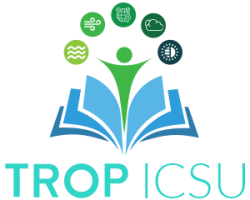Climate Solutions for Coastal and Ocean sinks sector

Climate Solutions for Coastal and Ocean sinks sector Reading A website resource designed and developed by ‘Project Drawdown’ that offers a sector-wise list of solutions to the climate crisis. It includes readings on specific solutions for various sectors and sub-sectors such as: Protect and Restore Ecosystems like mangroves, salt marshes, microalgae and seagrass meadows to […]
Climate Solutions for Buildings Sector

Climate Solutions for Buildings Sector Reading A short reading from ‘Project Drawdown’ that discusses climate solutions for the Transportation Sector. It lists different solutions by the Transportation sector towards addressing the climate crisis such as: Enhance efficiency by employing techniques like insulation along with optimising energy use Adopting clean energy alternatives for space & water […]
Climate Solutions for Transportation Sector

Climate Solutions for Transportation Sector Reading A short reading from ‘Project Drawdown’ that discusses climate solutions for the Transportation Sector. It lists different solutions by the Transportation sector towards addressing the climate crisis such as: Shift to alternative modes of mobility to reduce demand for fossil-fueled transportation Enhance efficiency through mechanical improvements and better design […]
Climate Solutions for Health and Education Sector

Climate Solutions for Health and Education Sector Reading A short reading from ‘Project Drawdown’ that discusses climate solutions for the Health and Education Sector. It explains how the connection between climate and social systems can offer profound insights into climate solutions. It also explains the importance of social factors such as family planning, population control, […]
Climate Solutions by Project Drawdown

Climate Solutions by Project Drawdown Reading A website resource designed and developed by ‘Project Drawdown’ that offers a sector-wise list of solutions to the climate crisis. It includes readings on specific solutions for various sectors and sub-sectors such as: Electricity: This reading summarises climate solutions for the electricity sector. It explains different technologies that generate […]
Climate Solutions for Industry Sector

Climate Solutions for Industry Sector Reading A short reading from ‘Project Drawdown’ that discusses climate solutions for the Industry Sector. It lists different solutions by the industry sector towards addressing the climate crisis such as: – Reduce the use of plastics, metals and cement and employ alternative materials in industrial processes – Move towards a […]
Climate Solutions for Electricity Sector

Climate Solutions for Electricity Sector Reading A short reading from ‘Project Drawdown’ that discusses climate solutions for the Electricity Sector. It lists different solutions by the electricity sector towards addressing the climate crisis such as: -Enhance efficiency by introducing new technologies and practices that reduce electricity demand – Shift production towards renewables and reduce dependency […]
Climate Solutions for the future

Climate Solutions for the Future Video A video playlist titled ‘CS – Drawdown – 9 – Coming Attractions’ from the ‘Murtugudde Climate Academy’ by Dr. Raghu Murtugudde. It consists of 29 short video lectures that summarise upcoming innovations in climate solutions. The solutions are based on the book titled ‘Drawdown’ edited by Paul Hawken. The […]
Climate Solutions for the Infrastructure Development Sector

Climate Solutions for the Infrastructure Development Sector Video A video playlist titled ‘CS – Drawdown – 8 – Materials’ from the ‘Murtugudde Climate Academy’ by Dr. Raghu Murtugudde. It consists of 7 short video lectures that summarise climate solutions for the Infrastructure Development Sector. The solutions are based on the book titled ‘Drawdown’ edited by […]
Understanding and Addressing Climate-related Challenges from China’s Perspective
Understanding and Addressing Climate-related Challenges from China’s Perspective Online Course An Online course to understand the science of climate change, climate change-related challenges, and opportunities/solutions to address these challenges for the world, in general, and for China, in particular. Students will learn about climate change science, the causes and impact of climate change, and actions […]


